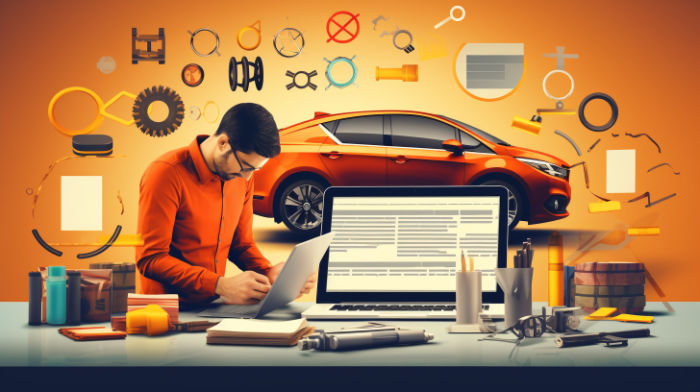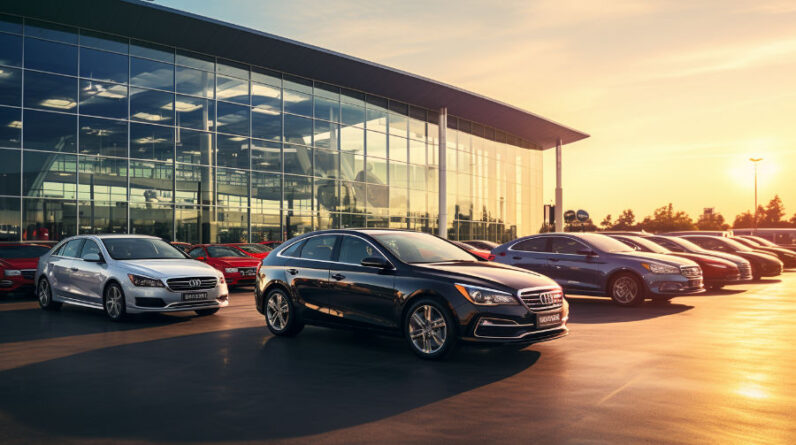Well, as the saying goes, ‘Don’t judge a book by its cover.’ This age-old adage holds true when it comes to second hand cars. While some may dismiss the idea of buying a used car, thinking it’s a risky venture, the truth is that there are numerous benefits to be gained.
In this article, we will explore the pros and cons of buying a used car, providing you with valuable insights and tips to help you make an informed decision. Whether you are a budget-conscious individual looking for cost savings or simply want to avoid the depreciation hit that comes with buying a brand new car, second hand cars can offer a world of opportunities.
From lower purchase prices to reduced insurance costs, buying a used car can provide you with significant financial advantages. However, it is important to consider factors such as maintenance history, mileage, and the overall condition of the vehicle before making a purchase. By following our expert advice, you can confidently navigate the used car market and find the perfect vehicle to suit your needs and budget.
So, let’s dive in and discover the world of second hand cars together!
Key Takeaways
- Second hand cars offer cost savings and avoid depreciation.
- Thorough research, inspection, and consideration of car specifications are essential when buying a used car.
- Factors to consider include maintenance history, mileage, overall condition, and market value.
- Certified pre-owned vehicles provide warranty coverage and have undergone rigorous inspections.
Pros of Buying a Used Car

You’ll find that buying a used car can save you a lot of money and give you the opportunity to drive a reliable vehicle without breaking the bank.
The pros of used cars are numerous. One of the biggest benefits of pre-owned vehicles is their affordability. Used cars generally have a lower price tag than new ones, making them a great option for budget-conscious buyers.
Additionally, used cars have already depreciated in value, so you don’t have to worry about the steep initial drop in worth that new cars experience.
Overall, buying a used car presents a cost-effective and practical choice for those in need of reliable transportation.
Cons of Buying a Used Car

There are downsides to purchasing a pre-owned vehicle. Despite the cost savings, there are potential risks involved.
Here are three reasons to consider before buying a used car:
- Higher maintenance costs: As a car gets older, it may require more frequent repairs and maintenance, which can add up over time.
- Limited warranty coverage: Used cars often have shorter or no warranty coverage, leaving you responsible for any repairs that may arise.
- Uncertain vehicle history: It can be difficult to know the complete history of a used car, including any previous accidents or major repairs.
Consider these factors before making your decision to ensure you’re fully aware of the potential drawbacks of buying a used car.
Tips for Buying a Used Car
When it comes to buying a used car, there are several key points to consider. First, it’s essential to conduct thorough research and inspection of the vehicle you’re interested in.
This includes checking its maintenance records, accident history, and overall condition.
Second, take the car for a test drive to ensure it meets your expectations and drives smoothly.
Lastly, consider certified pre-owned vehicles, as they often come with additional warranties and have undergone rigorous inspections.
By following these tips, you can make a more informed decision when buying a used car.
Research and Inspection
Before making a purchase, it’s essential to thoroughly research and inspect second-hand cars to ensure you’re getting a reliable and high-quality vehicle. To conduct effective research, utilize various methods such as online car listings, customer reviews, and vehicle history reports. Once you have narrowed down your options, use an inspection checklist to carefully assess the car’s condition, including its exterior, interior, engine, and overall performance. This comprehensive approach will help you make an informed decision and avoid any potential pitfalls.
| Research Methods | Inspection Checklist | Emotional Response |
|---|---|---|
| Online car listings | Exterior condition | Reliability |
| Customer reviews | Interior condition | Quality |
| Vehicle history reports | Engine performance | Trustworthiness |
| Overall performance | Satisfaction | |
| Peace of mind |
Test Drive and Vehicle History Report
To truly experience the thrill of the open road, hop behind the wheel and take that potential dream car for an exhilarating test drive. A test drive is crucial to assess the car’s performance, handling, and overall comfort. Pay attention to any strange noises, vibrations, or issues that may arise.
Additionally, don’t forget to review the vehicle history report to ensure it has a clean record and no past accidents.
Consider Certified Pre-Owned Vehicles
Opting for a certified pre-owned vehicle is like finding a hidden treasure chest packed with quality and peace of mind. These vehicles are a cost-effective option, providing you with the assurance of warranty coverage.
Buying a certified pre-owned car ensures that it has undergone a rigorous inspection process, meets specific quality standards, and comes with extended warranty coverage. This gives you the confidence that you’re getting a reliable vehicle at a fraction of the cost of a new one.
Factors to Consider When Buying a Used Car
When considering buying a used car, there are several factors you should take into account.
First, pay attention to the mileage and age of the vehicle. Generally, the lower the mileage and the younger the car, the better.
Second, it’s crucial to check the maintenance and service history to ensure the car has been well taken care of.
Lastly, consider the market value and resale potential of the vehicle to make sure you’re making a good investment.
Mileage and Age of the Vehicle
Buying a second-hand car is a great idea because you can find one with low mileage and a relatively young age. This is beneficial because lower mileage means less wear and tear on the vehicle’s components, reducing the likelihood of mechanical issues.
Additionally, a newer car will likely have modern features and safety advancements. Considering market trends and financing options can help you make a well-informed decision when purchasing a used car.
Maintenance and Service History
Ensuring proper maintenance and a detailed service history can greatly enhance the reliability and longevity of a used vehicle. To maintain a used car, it’s important to follow the manufacturer’s recommended maintenance schedule. Regular oil changes, tire rotations, and brake inspections are vital.
Additionally, checking the service history of a used car can provide valuable insights into its past maintenance and repairs. Review the vehicle’s service records, receipts, and any available Carfax report to assess its overall condition and reliability.
Market Value and Resale Potential
The market value and resale potential of a used vehicle can have a significant impact on its overall value and desirability. When considering buying a second-hand car, it’s important to understand the market trends and depreciation rates.
Market trends can affect the demand and supply of certain models, while depreciation rates indicate how quickly a vehicle loses its value over time. Being aware of these factors can help you make an informed decision and potentially save money in the long run.
Making an Informed Decision

To make an informed decision, it’s crucial to carefully consider the pros and cons of purchasing a second-hand car. When making the right budget, keep in mind that second-hand cars generally come at a lower cost compared to new ones.
However, it’s important to thoroughly check the vehicle’s condition to ensure it meets your standards. This includes inspecting the exterior, interior, engine, and conducting a test drive. By doing so, you can ensure a good quality second-hand car.
Frequently Asked Questions
How do I know if a second-hand car has been well-maintained by its previous owner?
To determine if a second-hand car has been well-maintained, look for signs of regular maintenance like clean oil and filters. Check for service records and documentation, which can provide insight into the car’s history and care.
Are there any warranties available for used cars?
Yes, there are extended warranties available for used cars. Many dealerships offer certified pre-owned programs that include extended warranties, providing additional peace of mind for buyers.
What should I look for when test driving a used car?
When test driving a used car, pay attention to its handling, acceleration, and brakes. Check for any strange noises or vibrations. Also, inspect the interior and exterior thoroughly. Afterward, use your findings to negotiate the price effectively.
How can I determine the fair market value of a used car?
To determine the fair market value of a used car, consider factors like the car’s age, mileage, condition, and demand. Depreciation value can be determined by comparing the car’s current value to its original price.
Are there any financing options available for purchasing a used car?
There are various financing options available for purchasing a used car. According to a recent study, around 80% of used car purchases involve some form of financing, highlighting the popularity of these options. Used car prices can vary, so it’s important to explore financing choices.
Conclusion
In conclusion, purchasing a second-hand car can be a wise decision for several reasons. Not only can it save you a significant amount of money, but it also allows you to avoid the steep depreciation that occurs in the first few years of owning a new car.
According to recent statistics, the average new car loses around 20% of its value within the first year. This visual representation highlights the financial advantage of buying used cars.
By considering the tips and factors outlined in this article, you can make an informed decision and find a reliable and cost-effective vehicle.




